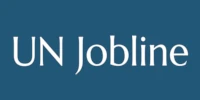Multisectoral Data Management Officer
JOB DETAIL
Mission and objectives
UNICEF Ethiopia is implementing a 5-year country programme 2020-2025 which is fully aligned with the UNSDCF. UNICEF will work collaboratively within the UNSDCF on a joint strategy to strengthen national systems for data collection, analysis, monitoring and applying adjustments to promote equity. Evidence will be used to monitor the situation of children, tracking progress towards equity and scale, and to inform advocacy to adjust policies, strategies and budgets. Monitoring and corrective actions will be undertaken through UNICEF staff, partners and third-party monitoring, and through mechanisms for community feedback and accountability to affected populations.
Context
Ethiopia is situated in the Horn of Africa and is the second most populous country on the continent with an estimated population of 115 million. It borders six African countries: Djibouti, Eritrea, Kenya, Somalia, South Sudan, and Sudan, and covers 1,104,300 square kilometres. Approximately 85 percent of the population lives in rural areas. Ethiopia represents a melting pot of ancient cultures with Middle Eastern and African cultures evident in the religious, ethnic, and language composition of its people. Over the past two years, children and their families across Ethiopia faced multiple and complex emergencies, such as the conflict in the northern Ethiopia and the drought, which resulted in millions of people in need of urgent humanitarian assistance. UNICEF has programmes in Child Protection, WASH, Health, Nutrition, Social Policy, and Education and serves over 15 million children in Ethiopia. For the different projects implemented under the country program, UNICEF generates rigorous evidence for management and learning and conduct formative research to contribute to data strengthening. In this regard, compilation, synchronization, and triangulation of data from multiple sources is done on a real-time while conducting multilayered data cleaning and verification. For this UNICEF has an online data management platform that integrates and displays project progress information on a common dashboard for tracking implementation. Data that is continuously uploaded from the field is displayed on a common dashboard for management response and creating accountability after passing different validation processes. Hence, recruitment of national UNV is urgently needed to fill a critical human resource gap to address increasing data management needs, ensure fulfilment of UNICEF’s role and accountabilities to affected population. The recruitment of the data management UNV at National level is required for better data collection, cleaning, verification, management response, accountability, monitoring, and reporting.
Task Description
Under supervision of Multisectoral Project Coordinator, the Multisectoral Data Management Officer provides assistance throughout the multisectoral project and other UNICEF projects. S/he will apply theoretical and technical skills in researching, collecting, analysing, and presenting technical programme information to support the development and formulation of the Programme within the Country office, while learning organizational rules, regulations, and procedures. The main responsibilities are: • Support to the data warehouse development for all the sections • Support to an online real-time data management development process through the consultation with other sections. • Support to routine data collection and updating it on data management system. • Extract data from UNICEF internal and partners’ management information system and update it on data management/monitoring system. • Technical and operational support to programme federal ministries, regional bureaux, woredas, NGOs and many others. • Networking and partnership building with stakeholders. • Innovation, knowledge management and capacity building. Specific Responsibilities: • Consolidate, compile, analyse, verify, and synthesize information and data collected from other sections. • Coordinate, facilitate and provide trainings. • Support documentation, review and sharing. • Track progress and implementation and ensure the monitoring dashboard is up to date. • Assist to prepare the required documentations and materials to facilitate programme review. • Participate in monitoring and evaluation exercises and sectoral reviews with government and other partners and prepare minutes and reports on results for follow up action by UNICEF and other stakeholders. • Undertake field visits, and exchange information with partners and stakeholders to assess progress. • Apply innovative approaches and promote good practices to support the implementation and delivery of concrete and sustainable programme results.
Competencies and values
• Works Collaboratively with others • Builds and Maintains Partnerships • Innovates and Embraces Change • Thinks and Acts Strategically • Drive to achieve impactful results • Accountability • Judgement and decision-making • Planning and organising • Professionalism • Self-management
Living conditions and remarks
Addis Ababa is the capital of the Federal Democratic Republic of Ethiopia. The population is estimated at about 4 million or so. The climate is sunny and temperate, but it can be very cold at night, with freezing temperature at times. It is therefore advisable to bring warm clothing and foresee using heaters and/or log fires when necessary. Addis Ababa is the headquarters for the UN Economic Commission for Africa as well as the African Union (ex-OAU). Thus, there is a very large community of expatriates from all over the world. There are some 80 embassies/diplomatic missions. Housing is most of the time readily available and the rents are, on average, reasonable. Most foodstuffs, beverages, household goods, furniture and clothing, mostly imported from the Middle/Far East, South Africa and Europe, or local brands, can be found, although they can be expensive. Meat, fish, fresh fruits and vegetables are cheap and abundantly available. As this is a national UN Volunteer assignment, the UN Volunteer will be responsible for arranging his/her own housing, other living essentials and will already be fully conversant with the living conditions in Ethiopia. . You can check full entitlements at the duty station at https://app.unv.org/calculator. The complete UN Volunteer Conditions of Service is available at https://explore.unv.org/cos.
